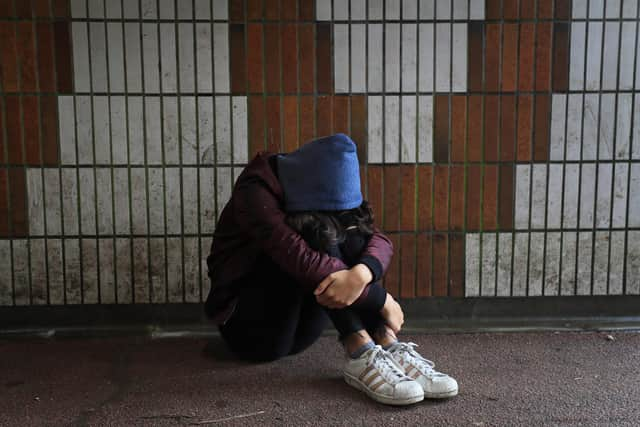Thousands of Wigan children are considered to be in need
and live on Freeview channel 276
The revelation comes as the Local Government Association said greater funding for children's services and councils is needed to meet the high demand for families needing support.
Figures from the Department of Education show there were 2,964 children assessed as needing help and protection because of risks to their development or health in Wigan as of March 31 this year – down from 3,131 the year before.
Advertisement
Hide AdAdvertisement
Hide Ad

Children in need include unborn children, as well as young people aged 18 or over who continue to receive care, accommodation or support from children’s services.
The rate of children in need in Wigan was 436 per 10,000 children, well above England's overall rate of 343 per 10,000.
Louise Gittins, chair of the LGA's children and young people board, said the figures highlight the growing pressure on councils to support vulnerable children and families.
She added: "It is absolutely vital that the Autumn Statement ensures that children’s services are adequately funded so councils can meet this continually high demand and ensure children and their families get the support they need, as soon as they need it.
Advertisement
Hide AdAdvertisement
Hide Ad"Councils continue to innovate in order to reduce costs, but further funding is required in order to meet demand."
She said funding for all councils – not just those chosen for pilot schemes – could be invested in stabilising the current social care system and helping the Government "fulfil its ambitions for all children".
Across England, there were over 640,000 referrals requesting services for children in 2023, down 1.5% from 2022.
In Wigan, there were 5,181 referrals last year. Of them, 28.7 per cent were found to not need services.
Advertisement
Hide AdAdvertisement
Hide AdAfter a child is referred to children’s social care services, an assessment is carried out to identify the primary need for services.
Some factors identified in assessments in Wigan included domestic abuse concerns where the parent is a victim (13 per cent), mental health concerns about the parent (13 per cent), and emotional abuse (seven per cent).
Iryna Pona, head of policy at The Children's Society, said the recent statistics underscore the persistent challenges many young people face.